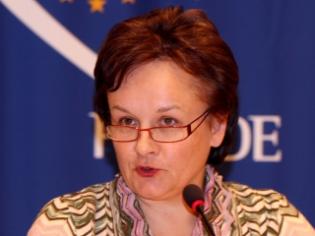By Laima Andrikiene, Member of the European Parliament (MEP)
On the 10th of October Taiwan marked 100 years since the overthrow of the Qing Dynasty in China and the beginning of the Chinese republican tradition. One hundred years on, Taiwan is a modern democratic country with dynamic and entrepreneurial economy offering sound opportunities for economic cooperation.
The EU has a lot to gain from Taiwan. A number of European business organizations have already spoken in favour of taking a more serious look into the possibility of having a free trade agreement (FTA) with Taiwan. Public officials, including from the European Commission, have also pointed to the economic benefits for the EU if such an agreement was concluded.
With a population of 23 million, exceeding that of Australia, Taiwan is an important market. And yet the EU’s trade relationship with Taiwan has recently performed well below its potential. Economic studies reveal that more liberalized bilateral trade could bring large gains for European companies in terms of exports of goods and services, as well as foreign direct investments.
One of Taiwan’s distinctive niches is in the global production chain of Information and Communication Technologies (ICTs). Not many people know that Taiwanese companies account for roughly 80 per cent of the global production of laptops, which are mainly exported via China, where the bulk of their production takes place. As a matter of fact, European ICT sector is itself heavily dependent on Taiwanese supply of high-end components and contract manufacturing.
Many European companies – especially in the ICT sector – are amassed by the possibility to use Taiwan as a hub to expand to China and the wider East-Asian supply chains. Taiwan’s advantage is its stable market with high intellectual property and judicial standards, which comes in contrast to China. Using these advantages could unlock the potential of triangular EU-Taiwan-China trade.
At the same time and contrary to some other trading partners in Asia, Taiwanese export structure does not threaten some of Europe’s most sensitive exports, such as automobiles and agriculture.
When negotiations with Taiwan are started, the EU should insist on the elimination of some of Taiwan’s peak tariffs, especially on automobiles and beverages. Taiwan should also do more to improve its domestic business climate. Currently Taiwan’s World Bank overall business-climate ranking is still worse than that of rel¬evant East Asian comparators, notably Japan, South Korea, Hong Kong and Singapore.
Inevitably, the issue of EU-Taiwan trade is confronted by the wider issue of Taiwan’s international status and the position of China on the issue. Some decision-makers in the EU are afraid that closer trade relations with Taiwan will affect the flourishing political and economic ties with China.
For those in doubt it should be reminded that from the economic point of view Taiwan is an independent customs territory, it is a full member of the World Trade Organization (WTO) since 2002, as well as full member of APEC and the Asian Development Bank. Therefore closer economic ties do not contradict EU’s “One China” policy.
Another important fact is that over the last years the political and economic relationship between China and Taiwan has become much warmer and culminated in the Economic Cooperation Framework Agreement (ECFA) concluded between the two sides in June, 2010. Warmer cross-strait relations should be seen as a factor that would facilitate the launch of EU-Taiwan FTA negotiations.
ECFA has already made it easier for Taiwan to negotiate FTAs with other partners in the wider Asian region. Negotiations have restarted between Taiwan and Singapore; they might be concluded in the next coming months. It is likely that similar negotiations would start as well with New Zealand, India, Indonesia and the Philippines.
The EU should be in line with these processes and not lose the momentum in expanding its market presence in the region that will shape the global economic future. There is no better time to start acting upon it than now when the Chinese republicans are looking forward to their second century.
Laima Andrikiene MEP (EPP) is a Member of the International Trade Committee of the European Parliament and Vice Chairperson of the Subcommittee on Human Rights
The EU should consider a free trade agreement with Taiwan




